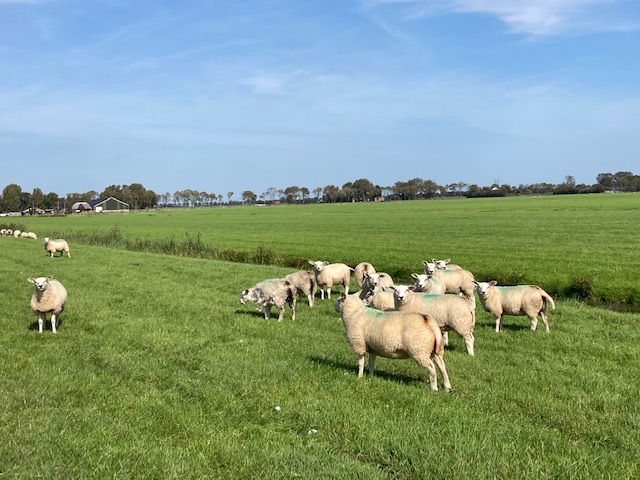Bluetongue found on Dutch sheep farms for first time since 2009

Sheep farmers in the Netherlands will have to start vaccinating sheep again to contain the first outbreak of bluetongue disease in 14 years, the agriculture ministry has said.
Four sheep farms in Noord-Holland and Utrecht have been hit by the virus so far. Bluetongue, which was last found in 2009, affects sheep, cattle, goats, deer and camelids, such as alpacas and llamas, but is not considered dangerous to humans.
The Netherlands will now lose its EU disease-free status, meaning sheep will have to be vaccinated before they can be exported, caretaker agriculture minister Piet Adema said in a briefing to MPs. The country will have to be clear of bluetongue for three years before it can be declared disease free again.
An investigation has begun into the source of the infection and the farms involved are no longer allowed to move live animals as a temporary measure. Adema said he is in talks with sector representatives and is investigating the possibilities of a suitable vaccine.
Bluetongue is spread by midges, not by direct contact between animals, opening up the possibility of more cases in the next few weeks, Adema said. Farmers have been told to use insect repellents to stop the disease from spreading.
Contrary to bird flu, foot and mouth disease or mad cow disease, no animals will have to be destroyed as a result of the disease, which is characterised by high fever, swelling of the lips and red to purply mucous membranes of the mouth and tongue.
Thank you for donating to DutchNews.nl.
We could not provide the Dutch News service, and keep it free of charge, without the generous support of our readers. Your donations allow us to report on issues you tell us matter, and provide you with a summary of the most important Dutch news each day.
Make a donation